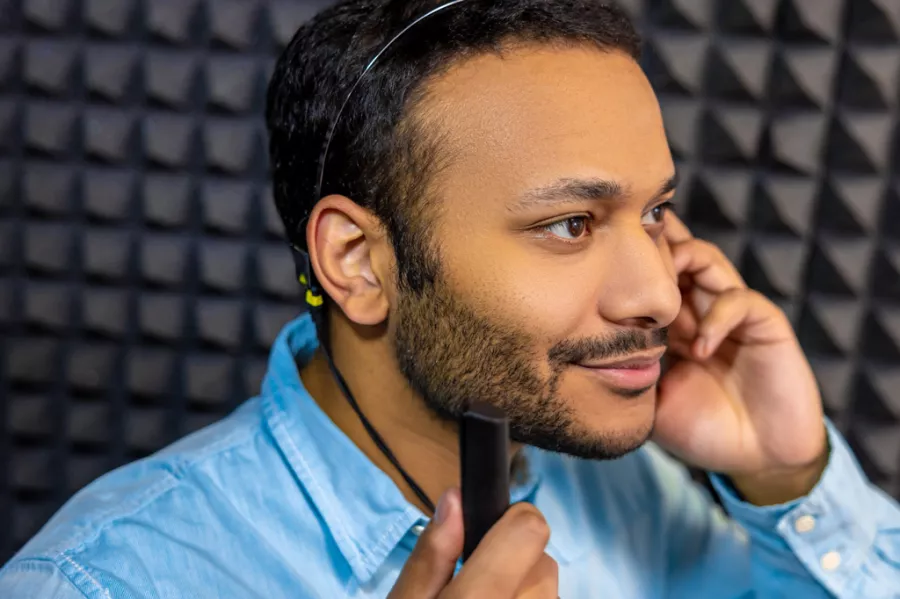
Getting your hearing tested as a kid was probably easy; you may have had it checked at school or at your annual physical. As adults, it’s often up to us to notice the signs of hearing loss. While hearing loss is common, the good news is that you don’t have to suffer in isolation, constantly turning the TV volume or repeatedly asking family and friends to speak up. Read on to get the answers to commonly asked questions about hearing loss.
Q: What causes hearing loss?
A: Age-related hearing loss is one of the most common causes, but there are reasons your hearing could be muffled. The World Health Organization lists the following as the main causes of hearing loss:
- Impacted cerumen (ear wax)
- Trauma to the ear or head
- Loud noise/loud sounds
- Ototoxic medicines
- Work-related ototoxic chemicals
- Nutritional deficiencies
- Viral infections and other ear conditions
- Delayed onset of progressive genetic hearing loss
Q: Who is at risk for hearing loss?
A: Everyone. Hearing loss can happen to infants and people as early as 30 and adults aged 65 and older. Some infants may have hearing loss at birth, and children are at risk if they have a family history of hearing loss or have a low birth weight. Age-related hearing loss in adults, called presbycusis, occurs gradually over time with different rates of progression for different people. Noise-induced hearing loss occurs from repeated exposure to loud sounds, like at a music concert, while using a lawn mower or leaf blower and when watching fireworks.
Q: What are the signs of hearing loss?
A: You might have hearing loss and not be aware of it or think it’s a part of normal life, especially if you’ve grown used to turning up the volume or asking people to speak louder. Signs of hearing loss include the following:
- You have trouble hearing over the phone
- You find it difficult to follow conversations when multiple people are talking
- You ask people to repeat themselves
- You turn up the TV so loud that others complain
- You think other people are mumbling or speaking softly
- You have difficulty hearing because of background noise
- You have difficulty understanding when certain people speak to you, often those with higher pitched voices or soft voices.
- You have earaches/ear pressure/fluid in your ears
- You have ringing in your ears
Q: How will my doctor check for hearing loss?
A: They’ll likely start with a screening to detect if your hearing is normal. If they notice hearing issues, they will likely schedule an additional hearing test, sometimes called a comprehensive hearing evaluation.
Q: How is hearing loss treated?
A: Treatment depends on the type of hearing loss. Your audiologists will conduct a variety of diagnostic tests to pinpoint the cause of your hearing loss. There are three types of hearing loss:
- Conductive hearing loss: Sound cannot pass from your outer or middle ear to your inner ear organ because your ear is blocked by fluid, ear wax or a foreign object. It can also be caused by damage to the eardrum, an infection or a bone abnormality.
- Sensorineural hearing loss: The most common type of hearing loss. It happens when your inner ear is damaged, usually over time. Several things, including age, injury and disease, can cause sensorineural hearing loss. Sudden hearing loss, or sudden sensorineural hearing loss, happens rapidly and without an obvious explanation.
- Mixed hearing loss: You have issues in both your inner and outer ear.
Once you understand what type of hearing loss type you’re experiencing, your doctor will discuss surgical and non-surgical treatments with you. There are many devices available today that can dramatically improve your hearing, ranging from sleek-shaped hearing aids to invisible, implantable hearing devices.
Q: How can you protect your hearing?
A: Avoiding loud, noisy situations is the best prevention. The Centers for Disease Control and Prevention suggest five steps to protect your hearing:
- Turn the volume down
- Walk/move away from loud noise
- Take breaks from noise
- Avoid loud, noisy activities and places
- Use hearing protection
Q: When should I get my hearing checked?
A: If you are having trouble hearing or have any of the signs listed above, you should speak to an audiologist or talk to your primary doctor. Other warning signs that may indicate you need to get your hearing checked include
- Dizziness or balance issues (your inner ear is linked to balance)
- Ringing, roaring, or whooshing sounds in one or more ears (tinnitus)
- Head trauma (if recommended after seeing a doctor)
- Fullness or pain in one or both ears
- Trouble detecting the direction from which sounds are coming
Schedule an appointment and learn more about how can help you treat hearing loss
